MercoPress. South Atlantic News Agency
Tag: trade barriers
-
Wednesday, July 2nd 2014 - 23:51 UTC
Argentina loses trade restrictions case at WTO, says Brazilian financial media

The World Trade Organization has ruled that a swath of import regulations imposed by Argentina violate international trade rules, according to the Buenos Aires media quoting diplomatic sources and Brazil's financial press. The ruling favors 43 countries those two years ago claimed Argentina had imposed trade barriers.
-
Saturday, December 7th 2013 - 06:51 UTC
Following marathon negotiations WTO reaches global deal to boost commerce

The World Trade Organization has agreed its first ever global deal aimed at boosting commerce. The agreement reached in Bali, Indonesia, simplifies trade procedures and also makes it easier for the poorest countries to sell their goods.
-
Wednesday, July 24th 2013 - 07:29 UTC
Argentina/Brazil trade disputes reached a ‘furious level’ during Mercosur last summit in Montevideo
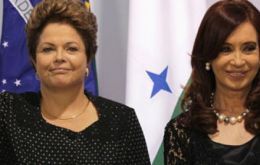
International issues helped Mercosur to close ranks and give a false image of unity during the last summit held in Uruguay, according to diplomatic sources in Montevideo that are surfacing details of a bitter exchange behind doors between Argentina’s Cristina Fernandez and Brazil’s Dilma Rousseff.
-
Tuesday, July 16th 2013 - 17:10 UTC
Argentina has dealt a ‘mortal blow’ to Mercosur that has become ‘a political forum’

Speaking for a Brazilian business association in Sao Paulo, Rubén Barbosa accused the government of Argentina of dealing a ‘mortal blow’ to Mercosur, the regional grouping that was originally focused on economic integration and has since become a political forum for the region’s leaders as was again evident during the last summit in Montevideo.
-
Monday, May 6th 2013 - 00:48 UTC
Brazil and Argentina working to find a long-standing agreement on trade, says Marco Aurelio

Brazil and Argentina are trying to address their economic and trade differences so that they can reach a long-standing, long term solution, said Marco Aurelio García, the Brazilian Executive advisor on foreign issues and trouble shooter for this kind of conflicts.
-
Tuesday, July 24th 2012 - 21:46 UTC
Argentina the world’s most protectionist country, says World Bank trade report
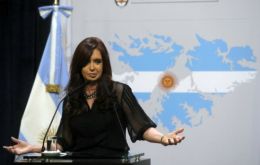
For the second time in the roll a study from World Bank’s Global Trade Alert points Argentina as the world’s most protectionist country. In a report released by the institution, Argentina appears as the country which applies the most restrictions to control foreign trade for the second time in a roll.
-
Tuesday, July 10th 2012 - 21:07 UTC
Argentina reports the US and Japan before the WTO for restrictions on beef and lemons
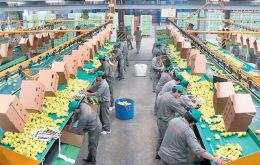
Argentina announced it has formally reported the United States and Japan before the World Trade Organization for the constant barriers set to Argentina’s meat and lemon exports to the afore mentioned countries.
-
Friday, July 6th 2012 - 07:11 UTC
Mexico follows on Argentina and withdraws from zero-tariff accord for auto industry
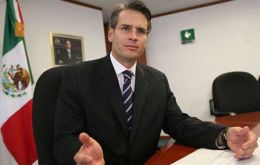
Mexico has withdrawn a zero-tariff agreement with Argentina on autos in a tit-for-tat trade dispute after the Argentine government's decision to pull out of an auto trade pact between the two countries.
-
Monday, July 2nd 2012 - 01:00 UTC
“Argentina will be responsible for the end of Mercosur” claims top Brazilian businessman
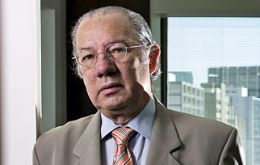
Brazilian businessman Rubens Barbosa, head of the foreign trade council of the Sao Paolo Federation of businessmen said on Sunday that in the last six months, the Argentine presidency of the bloc implemented measures that practically killed the Mercosur.
“Argentina will be responsible for the end of Mercosur,” he predicted. -
Sunday, April 1st 2012 - 08:02 UTC
Argentina targets Mexican car imports and considers revoking trade agreement

Argentina is considering applying measures to restrict the import of Mexican cars, which could include unilaterally denouncing the Economic Complementation Agreement (ACE) 55, which regulates bilateral trade, Argentine government sources told local media, ámbito.com.
